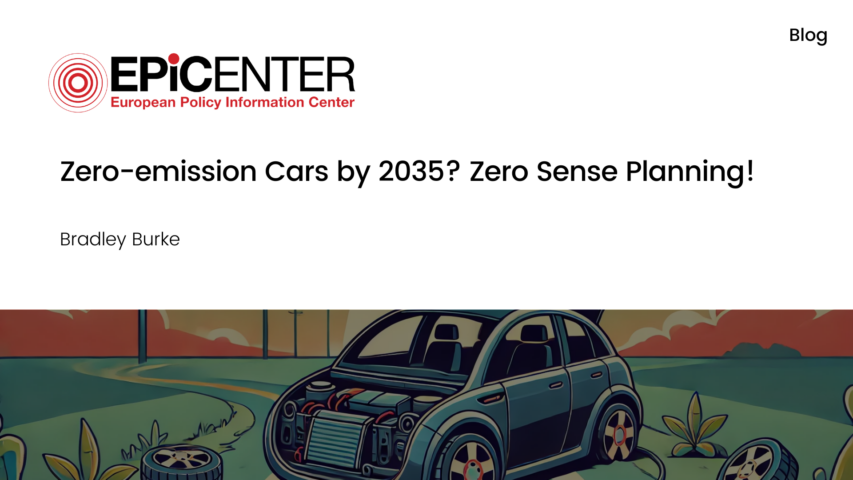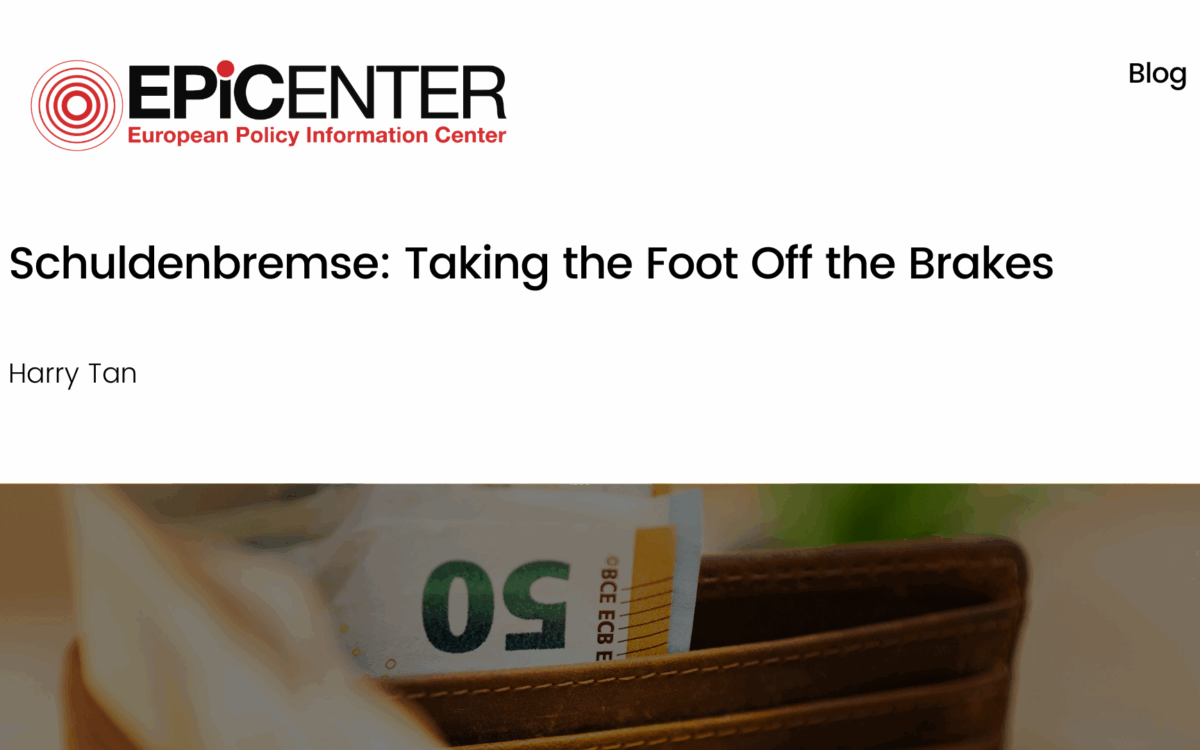Zero-emission Cars by 2035? Zero Sense Planning!

Zero-emission Cars by 2035? Zero Sense Planning!
Bradley Burke // 6 December 2022
The EU has legislated a zero-emissions sales mandate for new cars and vans from 2035, the first of an array of green laws the European Commission (EC) is set to introduce. While the ambitious climate-minded objectives behind this move deserve praise, particularly in the context of the disappointing COP27, a cost-benefit analysis is necessary for choosing the method with which to meet them. An interventionist approach to realising these goals risks government failure with far-reaching consequences.
During the 15 months from the legislation’s first presentation to its finalisation, Brussels faced lobbying by senior German politicians, business leaders and the car manufacturing industry against banking exclusively on electric vehicles (EVs). Despite an EU diplomat stating that the industry has accepted that there will be a ban on combustion engines, Renault and BMW petitioned for more time and flexibility, for instance by lobbying to include plug-in hybrids. Likewise, countries with large automobile industries – Italy, Slovakia and Romania – proposed a loophole to allow the use of e-fuels in conventional engines. All cases were rejected by EU diplomats who have decided that EVs are the way forward. Alongside the ban, the EU has committed to subsidising the cost of EVs and the financing of charging infrastructure. Such a proactive attitude towards reducing emissions in the transport sector is a sign that there is political willingness to take climate concerns seriously.
However, banning a specific technology and applying incentives to other selected technologies will constrain the functioning of the market. Governments have an unfavourable record in predicting winners and in this case, the EU is attempting to force invention in a specific technology while simultaneously eliminating its competition. The removal of substitute goods (conventional cars) means that EVs will face less competition, rent-seeking may occur and innovation will slow down. EVs are likely to remain prohibitively expensive due to a lack of price competition, thereby distorting the market. Though net-zero once manufactured, the production process of EVs involves a complex supply chain and power-intensive manufacture. Betting solely on EVs when alternatives such as e-fuels, hybrids, hydrogen fuel cells and improvements in public transport among others exist is myopic and opens the door to government failure.
Bans are often problematic and this one is no exception. Competition from abroad is likely to damage domestic businesses; for example China-based Great Wall as well as BYD have readied a range of EVs primed for EU export. Unless the EU wants to go down the problematic route of protectionism, the profitability of the European automobile industry, and concurrently, the jobs in the sector, are at risk. Besides potential market distortions, the EU is set to incur an opportunity cost in terms of loss of revenue from taxation as the automobile industry contributed €440 billion in 2020, more than 2.5 times the EU’s total budget.
The willingness to reduce emissions could be channelled more effectively into efforts to price carbon itself rather than banning quasi-random technologies. Implementing a uniform price for emissions regardless of the method of production allows the price mechanism to operate unhindered and enables the allocation of resources at the pace of, and in the areas of, uneven and unpredictable innovation. This would involve true competition between prices that reflect the good’s total cost of consumption, including its externalities such as emissions. The transition to net zero in the automobile industry is likely to be smoother this way than through the abrupt termination of conventional engines. It will also allow for carbon trading, wherein automobile industry emissions could be offset by purchasing carbon credits from other less carbon-intensive industries while still meeting economy-wide reductions.
Of course, carbon emissions are not the only pollutant associated with conventional engines. Particulates and other non-carbon pollutants degrade air quality in cities and this acts as another motivating factor for their curtailment. However, EVs are not devoid of these extra environmental costs as tyres and braking are significant sources of these. Controls such as Low Emissions Zones may represent a more effective way of mitigating bad air quality in cities than an outright ban.
Rather than heavy-handed regulatory intervention, the EC would benefit from an enhanced acknowledgement of the market’s ability to allocate resources efficiently and provide innovative ways of solving societal issues. Therefore, the EC should shift its focus from planning a specific route to net zero and instead ensure that external costs are increasingly incorporated into the price of goods. That way, the price mechanism will move towards penalising, and eventually preventing, the sale of carbon-intensive vehicles, along with other carbon-intensive goods!
EPICENTER publications and contributions from our member think tanks are designed to promote the discussion of economic issues and the role of markets in solving economic and social problems. As with all EPICENTER publications, the views expressed here are those of the author and not EPICENTER or its member think tanks (which have no corporate view).



